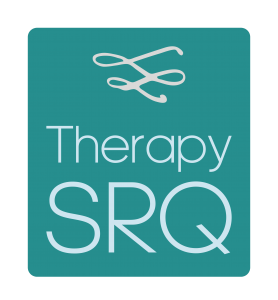Counseling support in Sarasota FL and Venice FL for Middle school girls who feel they don’t belong
Middle school can be a challenging time for many young girls. As they navigate the transition from childhood to adolescence, they may struggle with feelings of not belonging or fitting in with their peers. This can lead to a range of emotional and behavioral issues that can impact their overall well-being.
Fortunately, there is support available for middle school girls who are struggling with these issues. In Sarasota and Venice, FL, there are counseling services specifically designed to help young girls build healthy peer relationships and develop a sense of belonging. In this article, we will explore the importance of peer relationships for middle school girls and how counseling support can help them navigate this crucial time in their lives.
The Importance of Peer Relationships for Middle School Girls
During middle school, peer relationships become increasingly important for young girls. They begin to rely more on their friends for emotional support and validation, and their social circle expands beyond their family and close relatives.
The Impact of Peer Relationships on Mental Health
Positive peer relationships can have a significant impact on a young girl’s mental health. They provide a sense of belonging, boost self-esteem, and help girls develop important social skills. On the other hand, negative peer relationships can lead to feelings of isolation, low self-worth, and even mental health issues such as anxiety and depression.
by David Pennington (https://unsplash.com/@dtpennington)
The Role of Peer Relationships in Identity Development
Middle school is also a time when young girls are developing their sense of self and identity. Peer relationships play a crucial role in this process, as girls often look to their friends for validation and acceptance. When they feel like they don’t fit in or belong, it can have a significant impact on their self-image and self-confidence.
Signs Your Middle School Daughter May Be Struggling with Peer Relationships
It can be challenging for parents to know when their middle school daughter is struggling with peer relationships. Here are some signs to look out for:
- Withdrawal from social activities and spending more time alone
- Changes in behavior, such as becoming more aggressive or argumentative
- Difficulty making or maintaining friendships
- Low self-esteem and negative self-talk
- Changes in academic performance
- Expressing feelings of not belonging or fitting in
If you notice any of these signs in your daughter, it may be a sign that she could benefit from counseling support.
How Counseling Support Can Help
Building Healthy Peer Relationships
by Nathan Dumlao (https://unsplash.com/@nate_dumlao)
Counseling support for middle school girls focuses on helping them build healthy peer relationships. Through individual and group therapy sessions, girls can learn important social skills such as communication, conflict resolution, and empathy. They can also explore their own thoughts and feelings about their relationships and learn how to set boundaries and make healthy choices.
Addressing Underlying Issues
Sometimes, feelings of not belonging or fitting in can be a symptom of underlying issues such as anxiety, depression, or low self-esteem. Counseling support can help girls address these issues and develop coping strategies to manage them. By addressing these underlying issues, girls can improve their overall well-being and feel more confident in their relationships.
Providing a Safe Space to Express Themselves
Middle school can be a challenging time for girls, and they may not always feel comfortable talking to their parents or friends about their struggles. Counseling support provides a safe and confidential space for girls to express themselves without fear of judgment. This can be especially beneficial for girls who may feel like they don’t have anyone to talk to about their feelings.
How to Find Counseling Support for Your Middle School Daughter
by taylor hernandez (https://unsplash.com/@taylormae)
If you believe your middle school daughter could benefit from counseling support, there are a few steps you can take to find the right program for her:
- Talk to her school counselor or pediatrician for recommendations.
- Research counseling services in your area and read reviews from other parents.
- Contact Therapy SRQ to learn more about their programs and approach.
- Schedule an initial consultation to see if the program is a good fit for your daughter.
Student Support Contacts for Sarasota and Venice, FL
Sarasota Middle Schools:
- Sarasota Middle School
- Principal: Mrs. Jennifer Nzeza
- Phone: (941) 361-6464
- Email: Mrs. Jennifer Nzeza
- Sarasota County Schools Student Services
- Executive Director: Debra Giacolone
- Email: Debra Giacolone
- Administrative Assistant: Laura Ahumada-Aguilar
- Email: Laura Ahumada-Aguilar
- Student Services Administrative Assistant: Aimee White
- Email: Aimee White
- Phone: 941-927-9000, ext. 34756
- Fax: 941-361-6157
Venice Middle Schools:
- Venice Middle School
- Phone: (941) 486-2100
- Address: 1900 Center Road Venice, FL 34292
- Student Leadership Academy
- Phone: (941) 485-5551
- Address: 200 Field Ave E, Venice, FL, 34285
Conclusion
Middle school can be a challenging time for young girls, but with the right support, they can navigate this crucial time in their lives and develop healthy peer relationships. Counseling support in Sarasota and Venice, FL, offers a safe and supportive environment for girls to build self-esteem, develop social skills, and address underlying issues. If you believe your middle school daughter could benefit from counseling support, don’t hesitate to reach out and find the right program for her. With the right support, she can thrive and develop a strong sense of belonging and self-worth.






